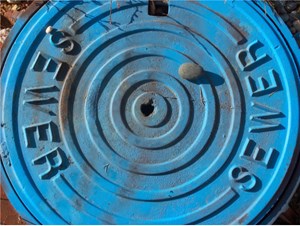St. Louis modifies $4.7 billion sewer project proposal to reduce community impact
LENEXA, Kan. (UC) – The Metropolitan St. Louis Sewer District (MSD) has proposed revisions to its $4.7 billion, 25-year sewer overhaul project to reduce the project’s impact on underserved communities.
The modifications to the sewer project, which must be approved by the U.S. Environmental Protection Agency (EPA), will not negatively affect ratepayers and also will reduce discharges of sewage into local waters, according to MSD.
“EPA commends MSD’s efforts to improve their long-term sewer project to benefit the community, consumers, and the environment,” Meg McCollister, EPA Region 7 administrator, said. “These modifications represent MSD’s and the federal government’s commitments to environmental justice and reducing harmful discharges to our nation’s waters.”
MSD is about 10 years into completing the project, a massive effort to upgrade the city’s aging sewer system by separating areas with combined sewer and stormwater pipes that lead to discharges of sewage into the Mississippi River and its tributaries. The project was approved by a federal district court in 2012, as part of a Consent Decree to resolve ongoing Clean Water Act violations alleged by EPA and the U.S. Department of Justice.
Proposed revisions to the project include replacing two wastewater storage tunnels with a single storage tunnel. This modification will lessen traffic and reduce construction impacts in the Richmond Heights area, a community already disproportionately affected by heavy traffic and pollution exposure. The revision will also reduce the need for purchasing residential properties and easement acquisition, as well as allowing for easier access in and out of construction areas.
The EPA said environmental justice — addressing the disproportionate impacts of environmental harm on vulnerable communities — is a top priority, the EPA said.
EPA administrator, Michael S. Regan, has pledged to “infuse equity and environmental justice principles into all EPA practices, policies, and programs.”
Related News
From Archive

- Glenfarne Alaska LNG targets late-2026 construction start for 807-mile pipeline project
- U.S. water reuse boom to fuel $47 billion in infrastructure spending through 2035
- $2.3 billion approved to construct 236-mile Texas-to-Gulf gas pipeline
- Major water pipe break in Puerto Rico hits over 165,000 customers
- Potomac River Tunnel project enters construction phase beneath Washington, D.C.
- Pennsylvania American Water launches interactive map to identify, replace lead water service lines
- Trump's tariffs drive $33 million cost increase for Cincinnati sewer project
- Utah city launches historic $70 million tunnel project using box jacking under active rail line
- Tulsa residents warned after sewer lines damaged by boring work
- Fatal trench collapse halts sewer construction in Massachusetts; two workers hospitalized




Comments